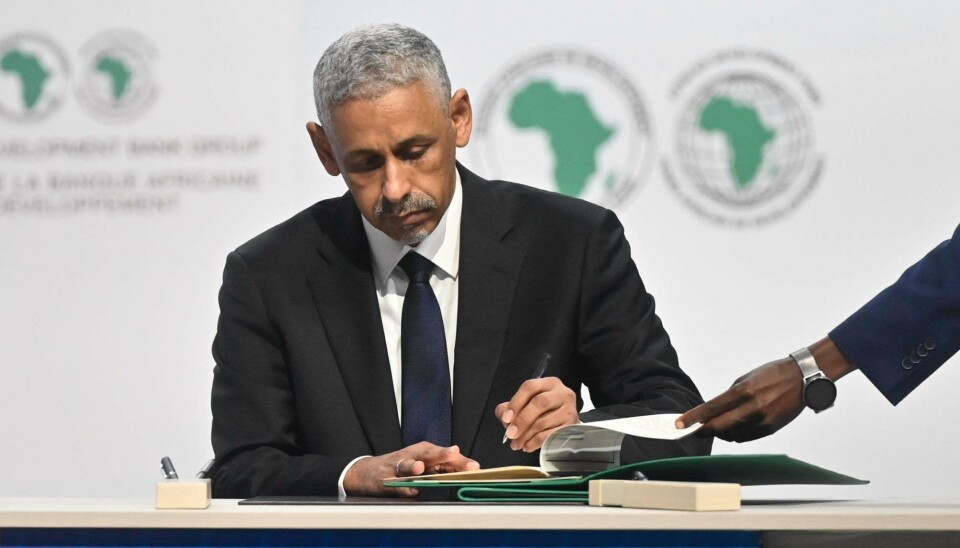Copyright : Re-publication of this article is authorised only in the following circumstances; the writer and Africa Legal are both recognised as the author and the website address www.africa-legal.com and original article link are back linked. Re-publication without both must be preauthorised by contacting editor@africa-legal.com
AfDB will deepen partnerships and accelerate real solutions, says Dr Sidi Ould Tah

This week in Abidjan, Dr Sidi Ould Tah was sworn in as ninth President of the African Development Bank, succeeding visionary leader Dr Akinwumi Adesina. Dr Ould Tah committed to leading a Bank that would help Africa navigate the path to increased self-reliance, ambition, and agency
The African Development Bank (AfDB) has a vital role to play as a guide for a continent that is confronting the 21st century challenges of demographics, technology and climate change, but must also be selective as it looks to lead the way in helping craft universal solutions shaped by African perspectives, African priorities, and African agency, says new AfDB President Dr Sidi Ould Tah.
“Africa must look North, South, East and West — not to imitate, but to draw wisdom and strength from every direction while defining its own course,” said Ould Tah after being sworn in as AfDB President at the Sofitel Abidjan Hôtel Ivoire earlier this week.
“Like a navigator guided by the compass, the Bank should help Africa navigate the megatrends toward increased self-reliance, ambition, and agency. The African Development Bank should not aim to be everything to everyone. It should focus on where it can move the needle most, always with the spirit of partnership.”
Dr Ould Tah, a distinguished economist, statesman, and transformative development banker from the Islamic Republic of Mauritania, succeeds Dr Akinwumi A Adesina, a visionary leader who led the bank for the past decade and became known as ‘Africa’s Optimist-in-Chief’ for his innovative ideas and passion for Africa’s future.
Adesina was joined by fellow former AfDB President Dr Donald Kaberuka, along with Côte d'Ivoire’s President Alassane Ouattara, and Mauritanian President Mohamed Ould Ghazouani, as well as other international dignitaries and AfDB directors and staff, for the high-level ceremony and passing of the baton of AfDB leadership.
President Ghazouani expressed full confidence in his compatriot, Dr Ould Tah, while noting he now carried a heavy responsibility to ensure the AfDB enhanced its key role in promoting Africa’s economic and social development, and remained a lever to fulfil the aspirations of African people for peace, prosperity and development.
“We will be the Bank that bridges divides - between regions, between ambitions and execution, between public and private, between urgency and bureaucracy,” said Dr Ould Tah in his inaugural speech. “Like a navigator guided by the compass, the Bank should help Africa navigate the megatrends toward increased self-reliance, ambition, and agency.”
Dr. Ould Tah also outlined his Four Cardinal Points: listening intently; launching a fast-track reform agenda; deepening partnerships; and accelerating real solutions as the core priorities which will guide his presidency in the first 100-days of office.
The AfDB would enhance partnerships by working closely with governments, the private sector, and international partners, said Dr Ould Tah, “so that together we create a financial framework that serves Africa on its own terms.”
Dr Ould Tah acknowledged the presence of Bank partners including Finance in Common, the Alliance of African Financial Institutions, the International Development Finance Club, and the Arab Coordination Group, and pledged his readiness “to expand the Bank’s partnership to new players such as sovereign funds, pension funds and others”. Additionally, he made a commitment to “urgently revisit our investment models to include a dedicated pillar for investment in peace.”
Dr Ould Tah brings to the AfDB Presidency over four decades of distinguished experience in development banking, economic policy, and institutional transformation. Fluent in Arabic, English and French, with working proficiency in Portuguese and Spanish languages, he previously served as Minister of Economy and Finance of Mauritania from 2008-2015, and Mauritania’s Governor on the Boards of the AfDB, World Bank, and the Islamic Development Bank, among others.
Dr Ould Tah inherits a pan-African institution with robust fundamentals: $318 billion in capital, AAA credit ratings for 10 consecutive years, and the world's highest transparency score for a sovereign portfolio, at 98.8 per cent. During Adesina’s presidency, the AfDB approved $102 billion in development financing.
